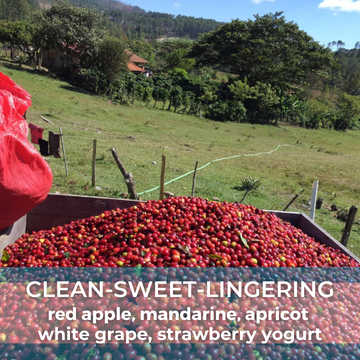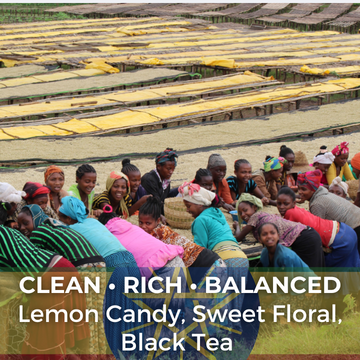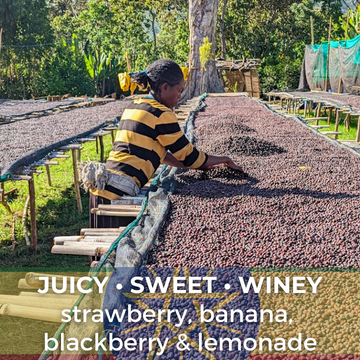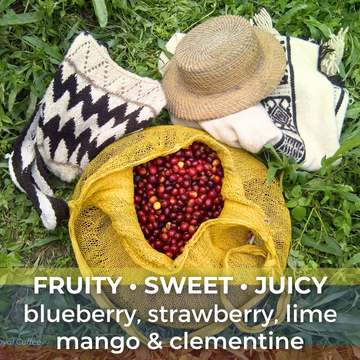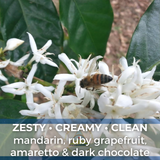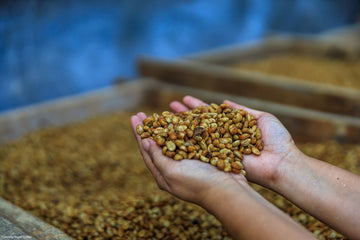Papua New Guinea Baroida Estate
Somewhat exotic, lower acidity and lots of body. This smaller bean is a bit cleaner and sweeter than its larger sorted neighbors. Still slightly complex and silky, this delightful cup is full of brown sugar, caramel and lemon grass.
Meticulous separation for quality control helps maintain the high quality of the estate’s coffee. After careful sorting, cherry is pulped on disc pulpers. Then, it dry-ferments in vats for approximately 36 hours. Following fermentation, water is pumped into the vats in a circular motion to naturally agitate the coffee and remove any remaining mucilage. Coffee is sundried on tarps, where it is turned regularly to ensure even drying.
Reminder! This coffee is raw, you must roast it before brewing
Arrival Date: May 2, 2025
Acidity & Brightness:Fairly bright and sweet
Balance & Finish:Fairly balanced with a clean finish
Body & Texture:Full body and creamy
Flavors: Brown Sugar, Black Tea, Lemongrass, Nutmeg
Grade: Grade A, 1,700 to 1,850 meters above sea level
Processing: Fully washed and sun dried
Grower: Colbran Family, Baroida Estate
Region: Eastern Highlands, Baroida, Aiyura, Kianantu
Varieties: Arusha , Bourbon, Mundo Novo, Typica
Recommended Roast Range: City+ to Full City+ (Light-medium to medium-dark)
We like this coffee in the City+ to Full City+ range (light-medium to medium-dark), with the best balance found right at Full City (full medium) or after 1st crack has ended, but 2nd crack hasn't begun. If it's too tangy for your liking, lean towards the first few snaps of 2nd crack.
Sucafina - Baroida Estate is located in the Kainantu District, Eastern Highlands Province. The estate was founded by Ben Colbran in the 1960’s when the Government encouraged foreign agriculturalists to begin cultivating land throughout the highlands. Ben first purchased the land from a native man named Taro and was amongst the first farmers to cultivate coffee in these valleys. Today, Ben’s son Nichol runs the plantation.
The name ‘Baroida’ comes from the Baroida spirit, believed by locals to reside in a large river rock sitting in one of the main rivers flowing through the estate. This particular rock has stubbornly remained in the middle of the river for as long as anybody can remember, refusing to budge through the most severe floods, even when other rocks have been washed away.
The Baroida plantation sits at the apex of the Lamari river valley and Mount Jabarra range. The plantation itself sits at about 1,700 to 1,850 meters above sea level amongst thousands of hectares of cleared land with former colonial coffee estates surrounding them (now run by native landowners) and flanked by mountains filled with smallholder coffee producers who cultivate close to a million trees.
